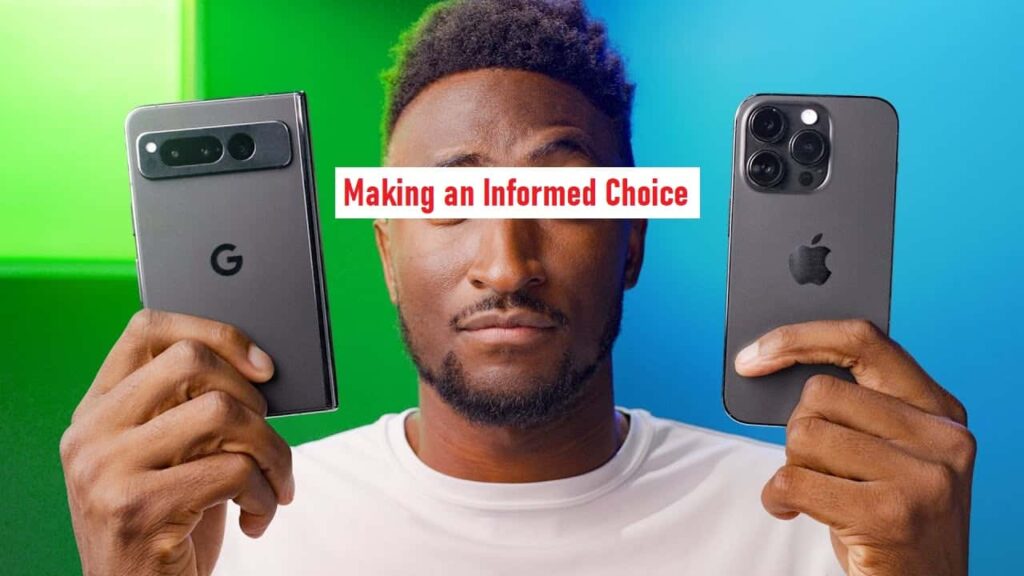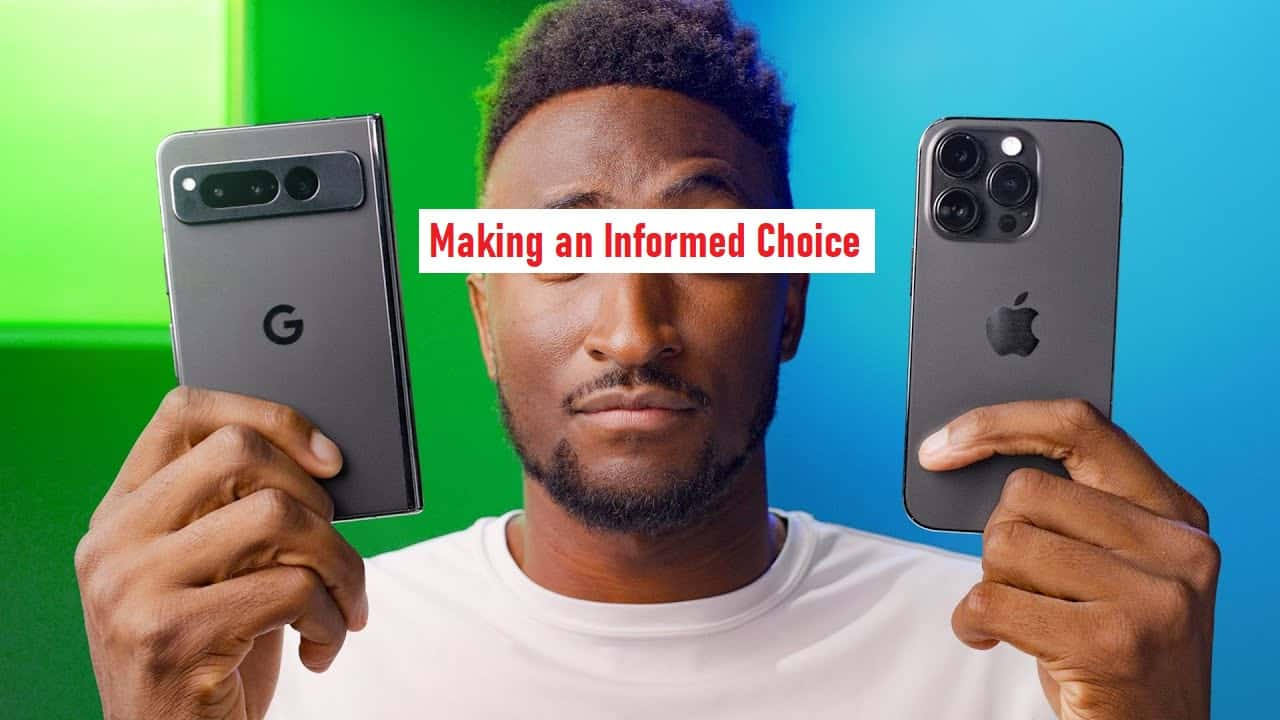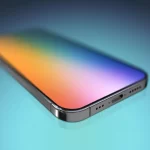In a world where smartphones have become an essential part of our lives, the choice between an iPhone and an Android device can be a perplexing one. Both have their merits and drawbacks, and choosing the right one depends on your individual preferences and needs. In this comprehensive article, we will dive deep into the iPhone vs. Android debate, exploring various aspects such as cost, hardware, software, ecosystem, and user experience.

Cost Considerations
Let’s start with the elephant in the room: the cost. iPhones have long been associated with premium pricing, often causing budget-conscious consumers to think twice. On the other hand, Android offers a wide range of devices catering to different price points. Let’s break it down:
iPhone: A Luxury Proposition
| Pros | Cons |
|---|---|
| High-quality build and design | Premium pricing |
| Seamless integration within Apple ecosystem | Limited budget-friendly options |
| Strong resale value | Expensive repairs |
Opinion: iPhones are undoubtedly a luxury proposition. If you are willing to invest in a premium device that seamlessly connects with your other Apple products, an iPhone may be worth it. However, if budget constraints are a concern, you might want to explore more cost-effective Android alternatives.
Android: Varied Choices
Android offers a diverse array of smartphones from various manufacturers, allowing consumers to choose a device that fits their budget. Let’s weigh the pros and cons:
| Pros | Cons |
|---|---|
| Wide range of price options | Inconsistent software updates |
| Customization and freedom | Fragmented ecosystem |
| Innovative features and hardware | Lower resale value for most devices |
Opinion: Android’s strength lies in its flexibility and affordability. You can find Android phones that cater to all budgets, from entry-level to flagship devices. However, be prepared for variations in software updates and ecosystem cohesion depending on the manufacturer.
Hardware Showdown
One of the primary factors influencing the choice between iPhone and Android is hardware. Both camps have made significant strides, so let’s compare:
iPhone: Meticulous Craftsmanship
| Pros | Cons |
|---|---|
| Superb build quality and materials | Limited hardware choices |
| High-performance Apple-designed chips | Proprietary connectors (Lightning) |
| Exceptional cameras and display quality | Expensive accessories |
Opinion: iPhones have a reputation for their top-notch build quality and excellent performance. Apple’s in-house designed chips consistently outperform the competition. However, the limited hardware choices within the iPhone lineup can be a drawback for those seeking more variety.
Android: Diversity in Hardware
| Pros | Cons |
|---|---|
| Diverse range of manufacturers and models | Quality may vary across brands |
| Innovative hardware features and form factors | Inconsistent software optimizations |
| More budget-friendly and mid-range options | Potential bloatware and UI customizations |
Opinion: Android offers an abundance of choices, allowing users to find a device that suits their preferences and budget. However, the quality and performance can vary significantly between brands and models.
Software: iOS vs. Android OS
The choice of operating system can be a decisive factor when choosing a smartphone. Let’s examine the strengths and weaknesses of iOS and Android OS:
iOS: Streamlined and Controlled
| Pros | Cons |
|---|---|
| User-friendly and intuitive interface | Limited customization options |
| Regular and consistent software updates | Closed ecosystem |
| Tight integration with other Apple devices | Limited app sideloading |
Opinion: iOS is renowned for its user-friendly interface and seamless integration within the Apple ecosystem. It offers consistent updates and a robust app store. However, the closed nature of iOS restricts customization and app choices.
Android OS: Freedom and Flexibility
| Pros | Cons |
|---|---|
| Extensive customization options | Inconsistent software updates |
| Open ecosystem with diverse app choices | Potential for bloatware |
| Greater control over system settings | Fragmentation across devices and brands |
Opinion: Android OS provides users with the freedom to customize their devices and choose from a wide range of apps. However, it comes with the challenge of inconsistent software updates and fragmentation across different devices.
The Ecosystem Effect
The ecosystem surrounding your smartphone can significantly impact your daily life. Let’s explore how iPhones and Android devices differ in this regard:
iPhone Ecosystem: Seamless Integration
| Pros | Cons |
|---|---|
| Seamless integration with other Apple products | Reliance on Apple ecosystem |
| Features like AirPods and Apple Watch | Limited compatibility with non-Apple devices |
| iCloud for easy data synchronization | Costly to maintain ecosystem |
Opinion: If you are already invested in the Apple ecosystem with products like MacBooks, iPads, AirPods, and Apple Watches, an iPhone seamlessly complements these devices. However, it can be expensive to maintain this ecosystem.
Android Ecosystem: Diverse and Expansive
| Pros | Cons |
|---|---|
| Compatibility with a wide range of devices | Ecosystem integration may require effort |
| Flexibility to mix and match brands and products | Inconsistencies in user experience |
| Expansive ecosystem with various manufacturers | Limited integration with non-Android devices |
Opinion: The Android ecosystem offers versatility, allowing users to choose from a variety of devices and brands. While it may require more effort to integrate, it offers greater flexibility.
User Experience: iOS vs. Android
Ultimately, the user experience is what matters most. Here’s a breakdown of the user experience on both iOS and Android:
iOS User Experience: Streamlined and Cohesive
Pros:
- Intuitive Interface: iOS provides a user-friendly interface that’s easy to navigate.
- Consistent Updates: Apple delivers regular and consistent software updates, ensuring device security and new features.
- App Quality: The App Store boasts high-quality apps optimized for iOS devices.
Cons:
- Limited Customization: iOS restricts customization options compared to Android.
- Closed Ecosystem: Users are locked into the Apple ecosystem, which may limit flexibility.
Opinion: If you value a streamlined and cohesive user experience with a focus on simplicity, iOS is a strong choice.
Android User Experience: Versatile and Customizable
Pros:
- Customization: Android offers extensive customization options, from widgets to home screen layouts.
- Diverse Hardware: Users can choose from a wide range of Android devices to suit their preferences.
- Greater Control: Android allows for more control over system settings.
Cons:
- Software Fragmentation: Inconsistent software updates and UI customizations across brands can lead to a fragmented experience.
- Potential Bloatware: Some Android devices come with pre-installed bloatware.
Opinion: If you value versatility and customization, Android provides a user experience tailored to your preferences.
Real-World Examples
To illustrate the iPhone vs. Android debate in real-world scenarios, let’s consider a few common user profiles:
Scenario 1: The Apple Aficionado
Meet Sarah, an avid Apple user with a MacBook, iPad, and Apple Watch. She values the seamless integration between her devices and the convenience of using iCloud for data synchronization. For Sarah, an iPhone is the natural choice.
Scenario 2: The Tech Tinkerer
John loves tinkering with technology, and he prefers to customize his devices to his heart’s content. He also appreciates the freedom to choose from a wide range of Android devices, from OnePlus to Samsung. John’s Android phone allows him to express his tech-savvy nature.
Scenario 3: The Budget-Conscious Shopper
Lisa is on a tight budget but still wants a smartphone that performs well. She opts for an Android device from a mid-range brand, getting great value for her money without sacrificing essential features.
Scenario 4: The Minimalist
Mark prefers simplicity and doesn’t want to be overwhelmed with choices. He values a straightforward user experience and knows that an iPhone will provide just that.
Conclusion: Your Choice, Your Lifestyle
The iPhone vs. Android debate ultimately comes down to your lifestyle, preferences, and priorities. Both have their strengths and weaknesses, and neither is objectively superior. Consider your budget, desire for customization, ecosystem, and user experience when making your choice. Whether you go for the sleek elegance of an iPhone or the versatile world of Android, the decision should align with your unique needs and tastes.













